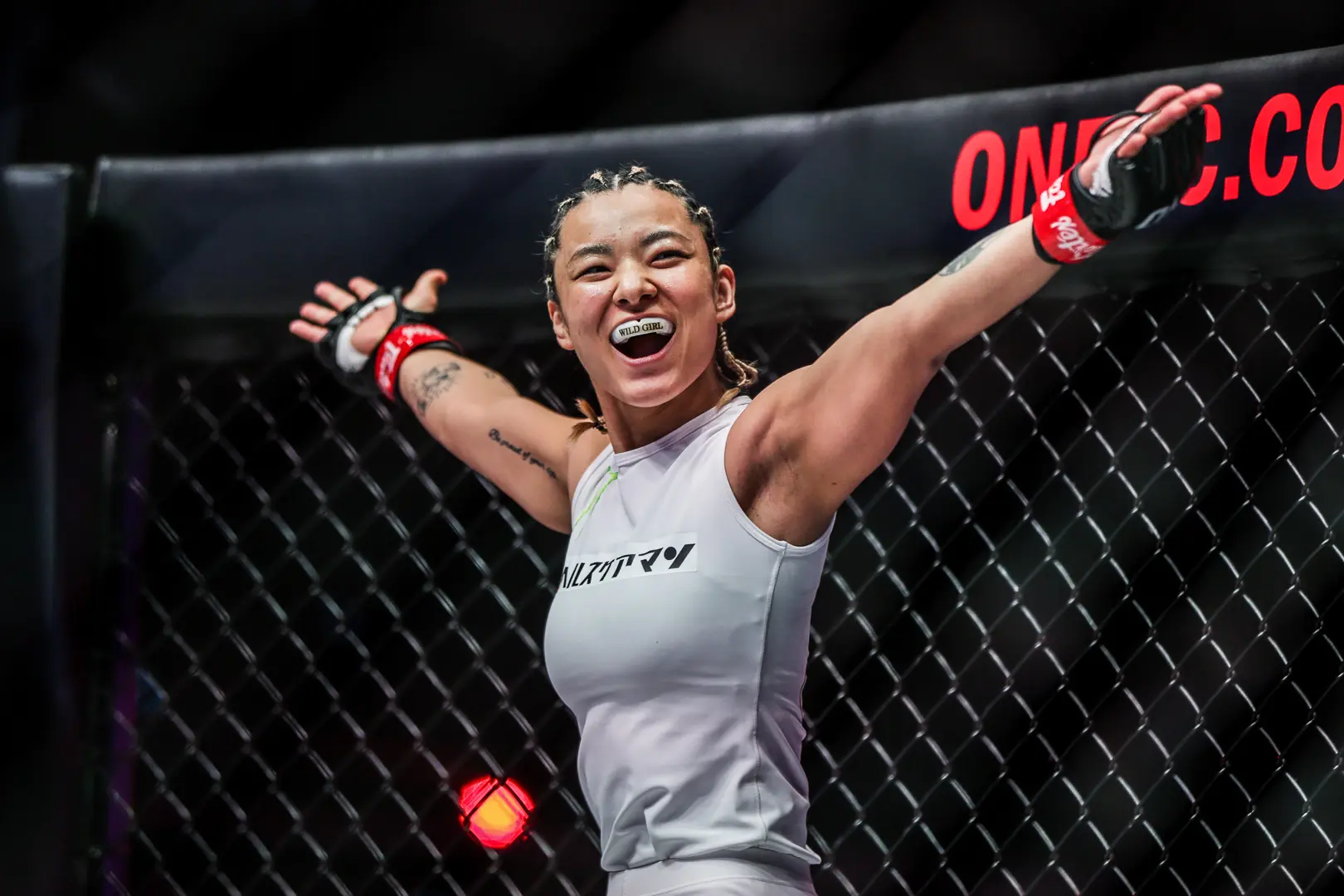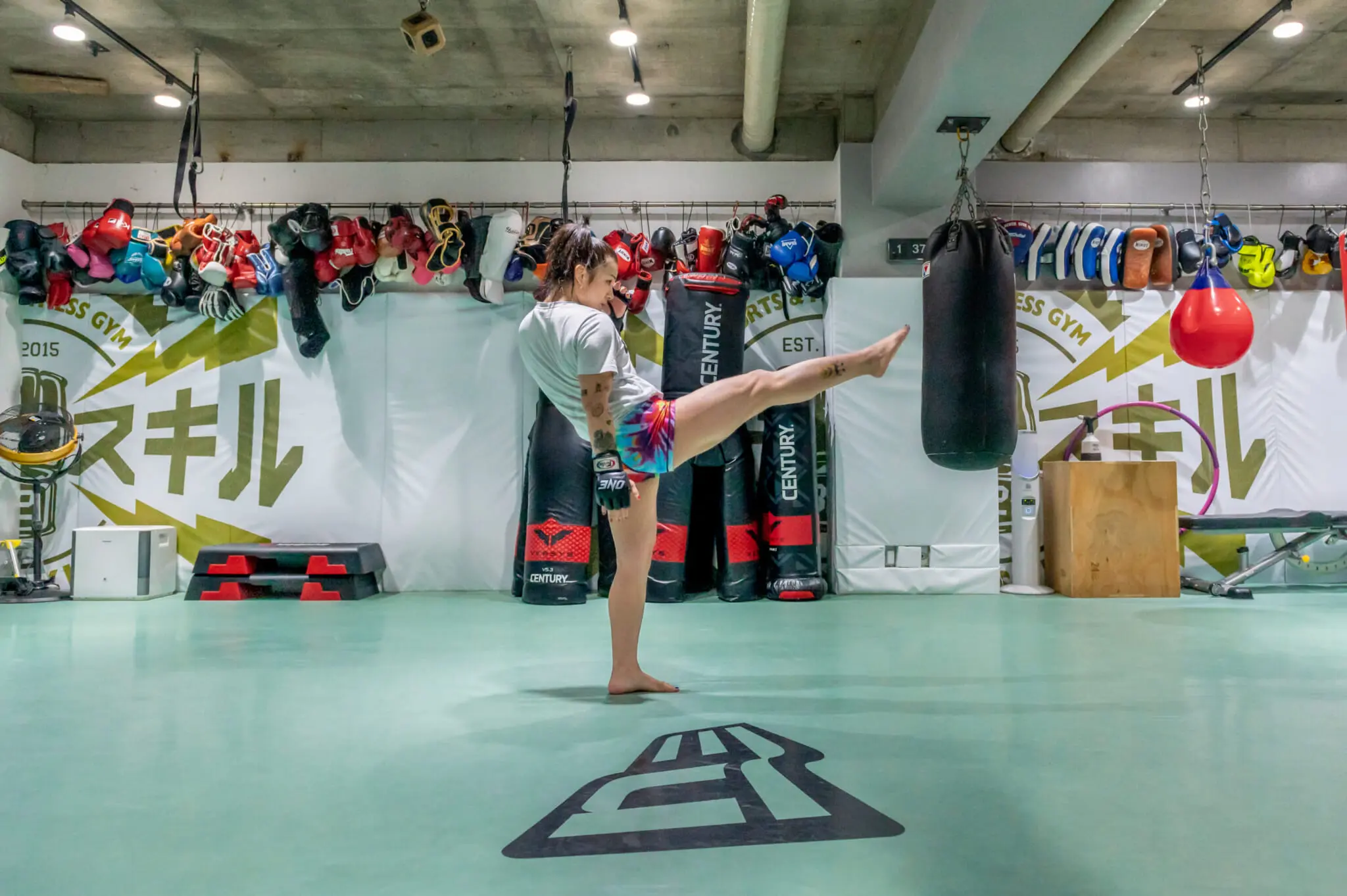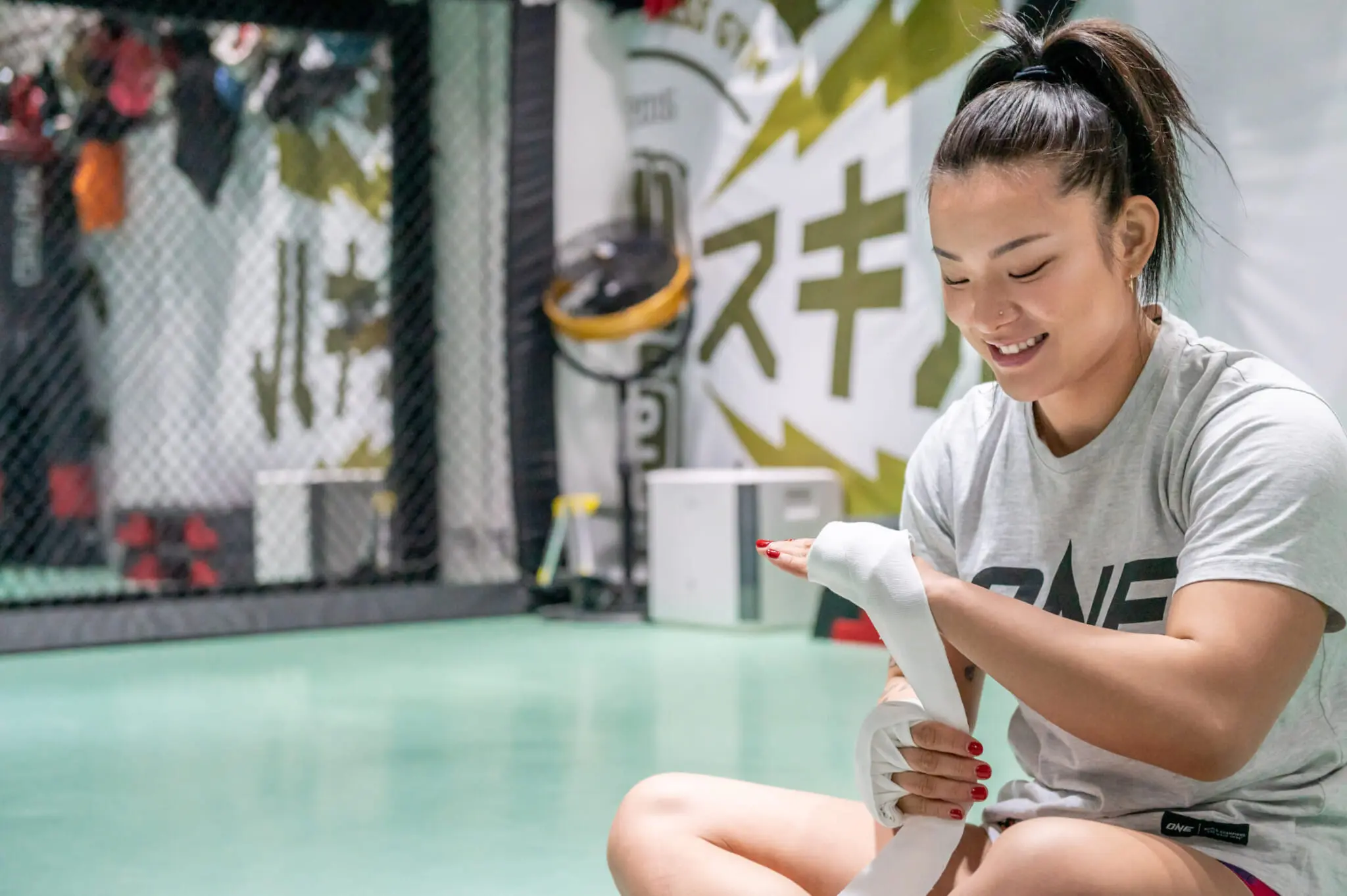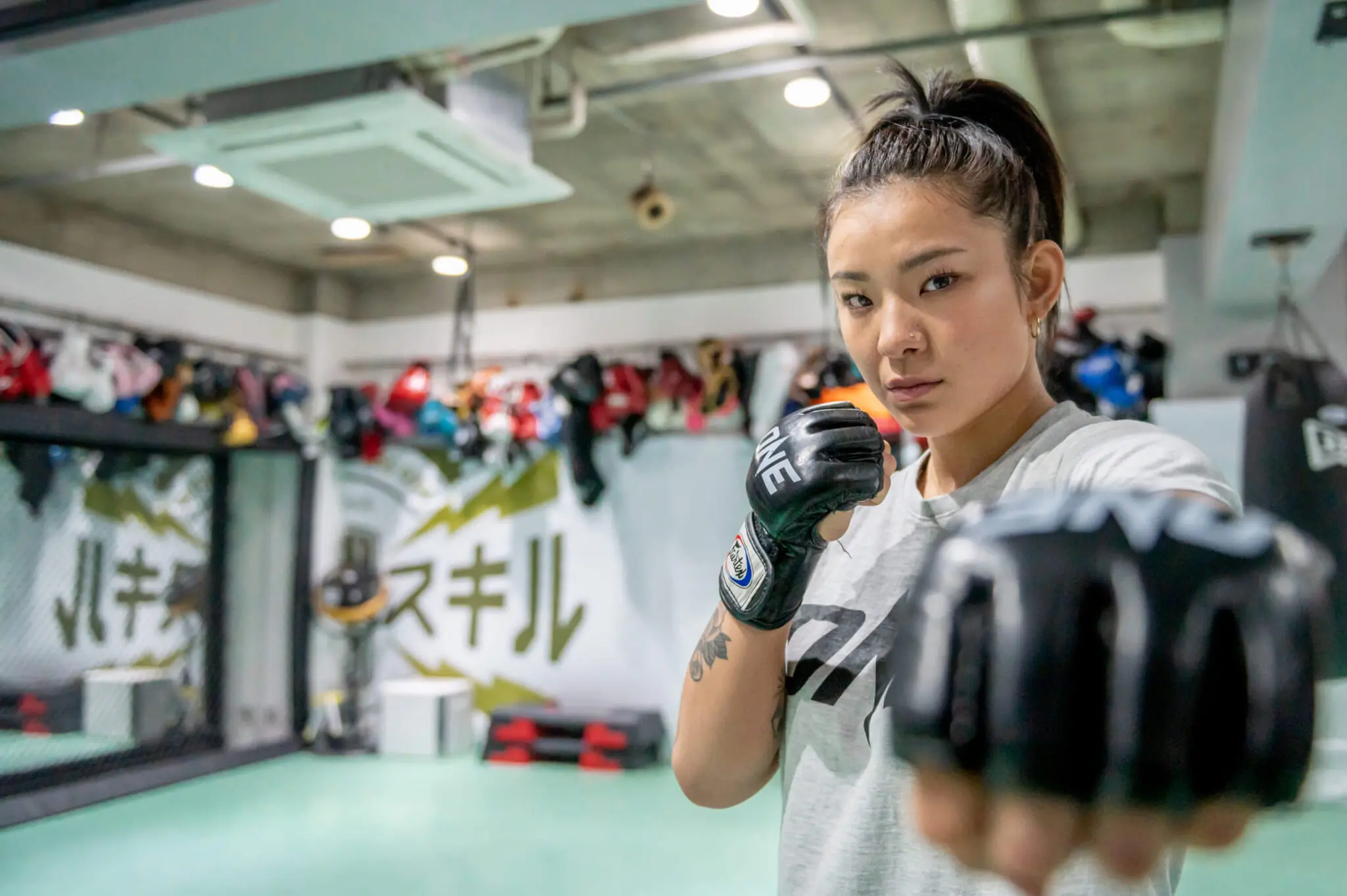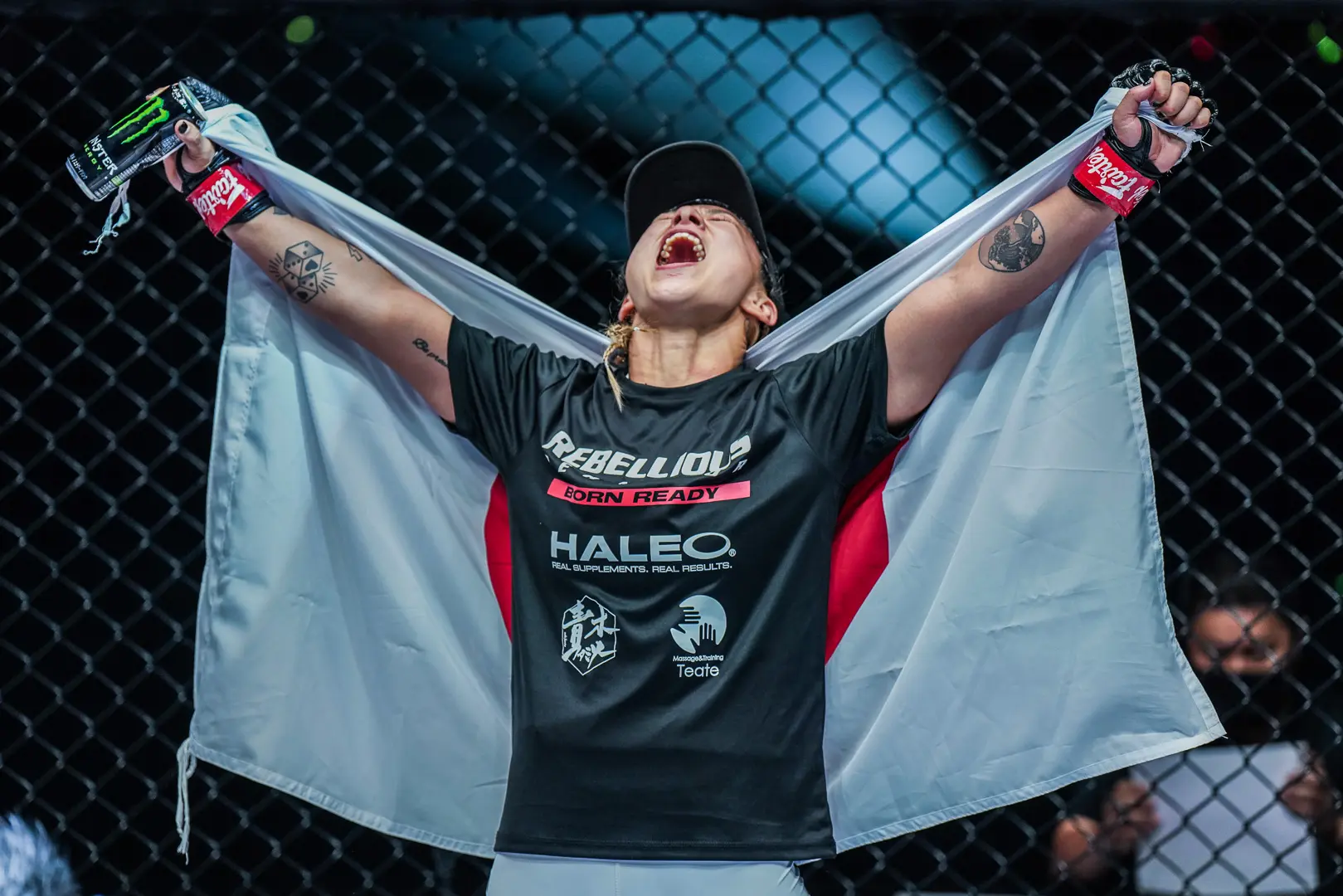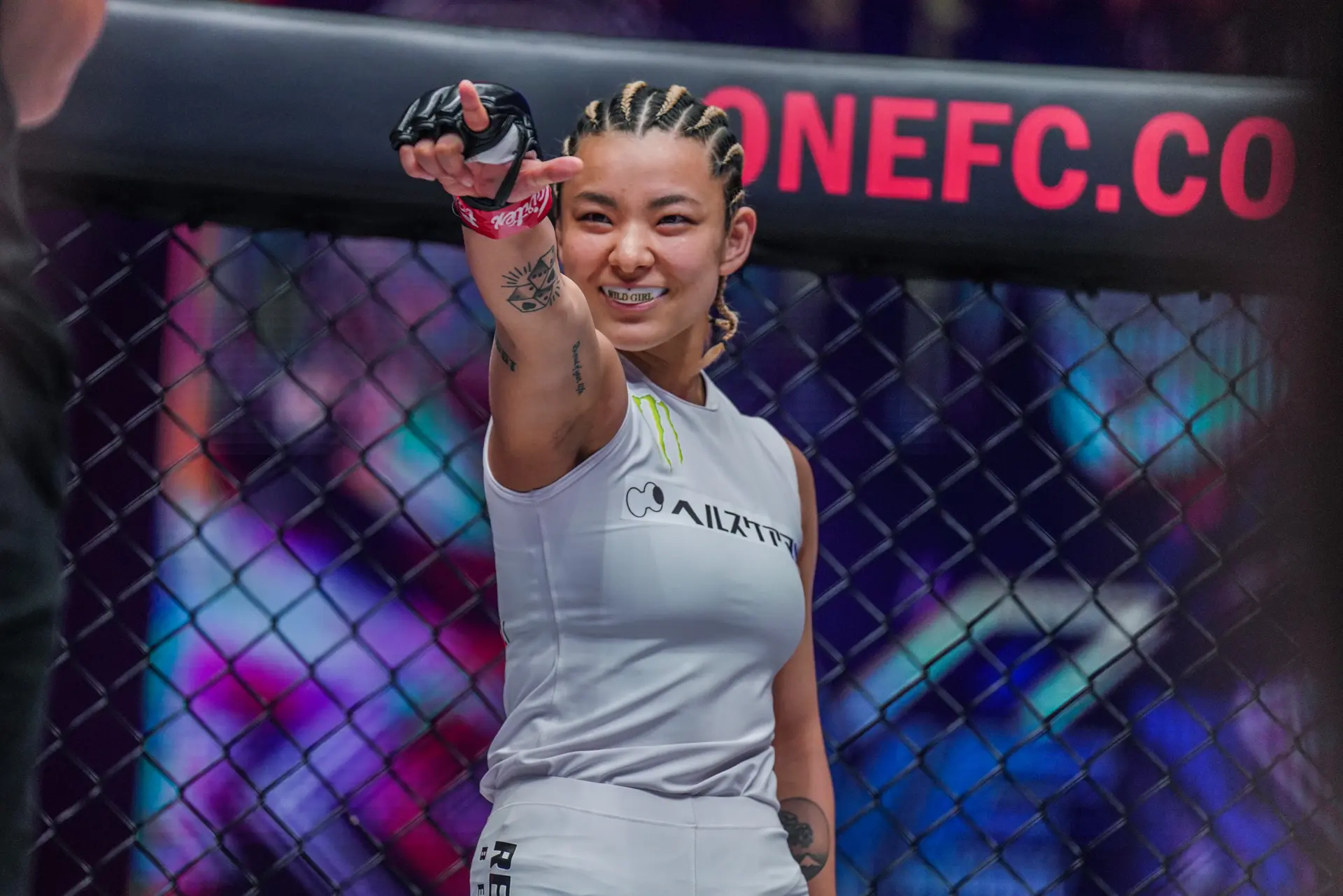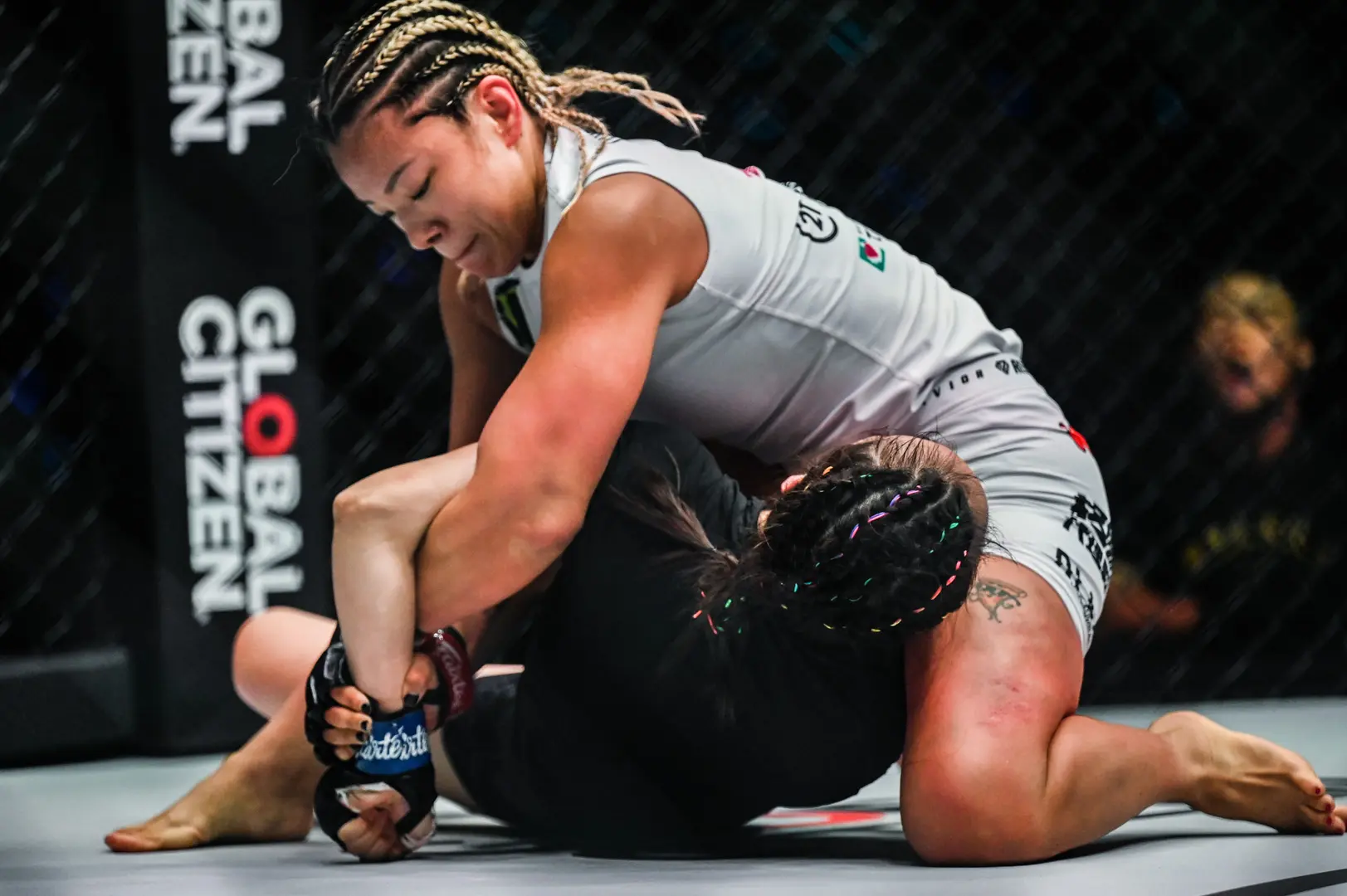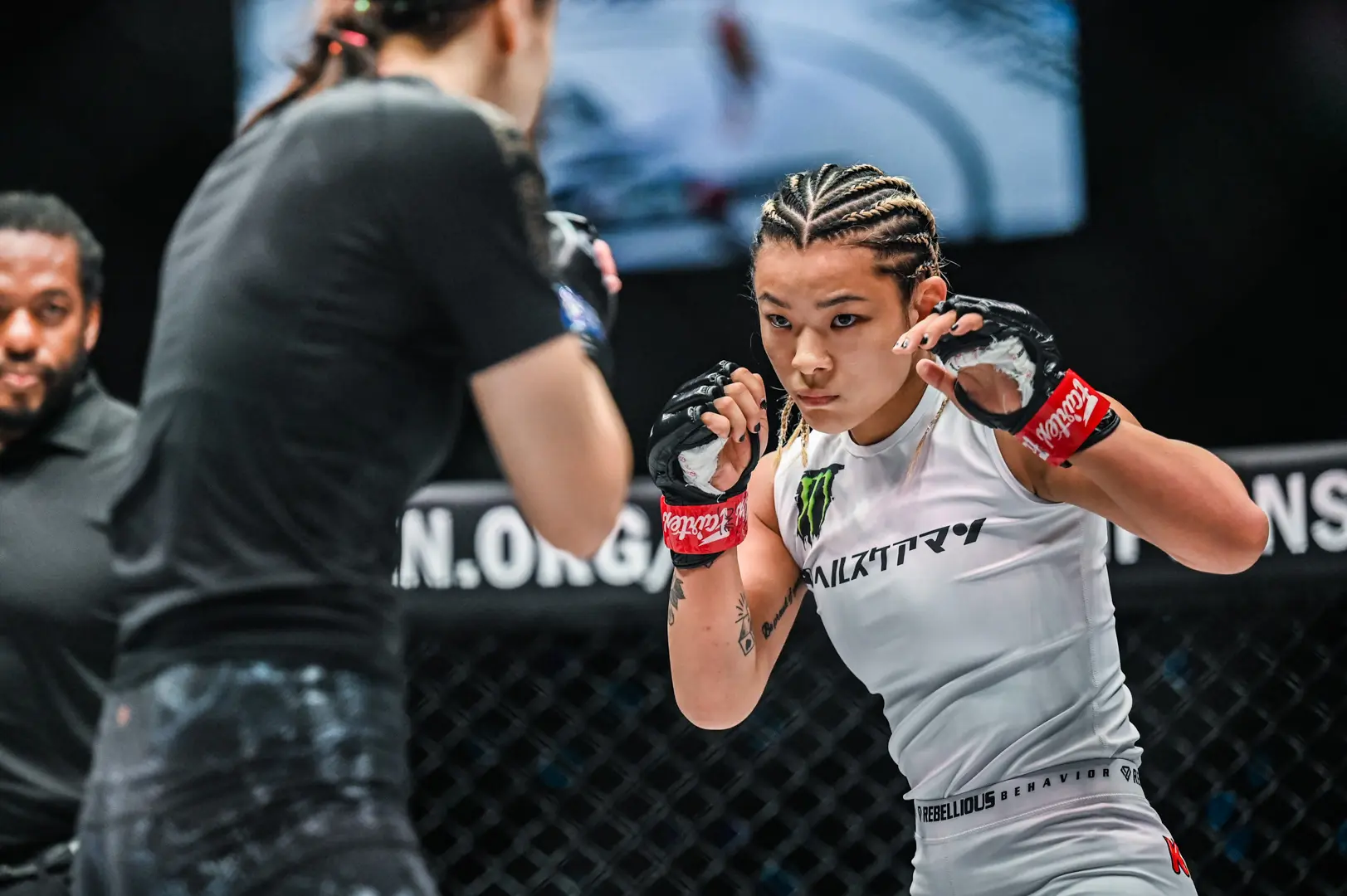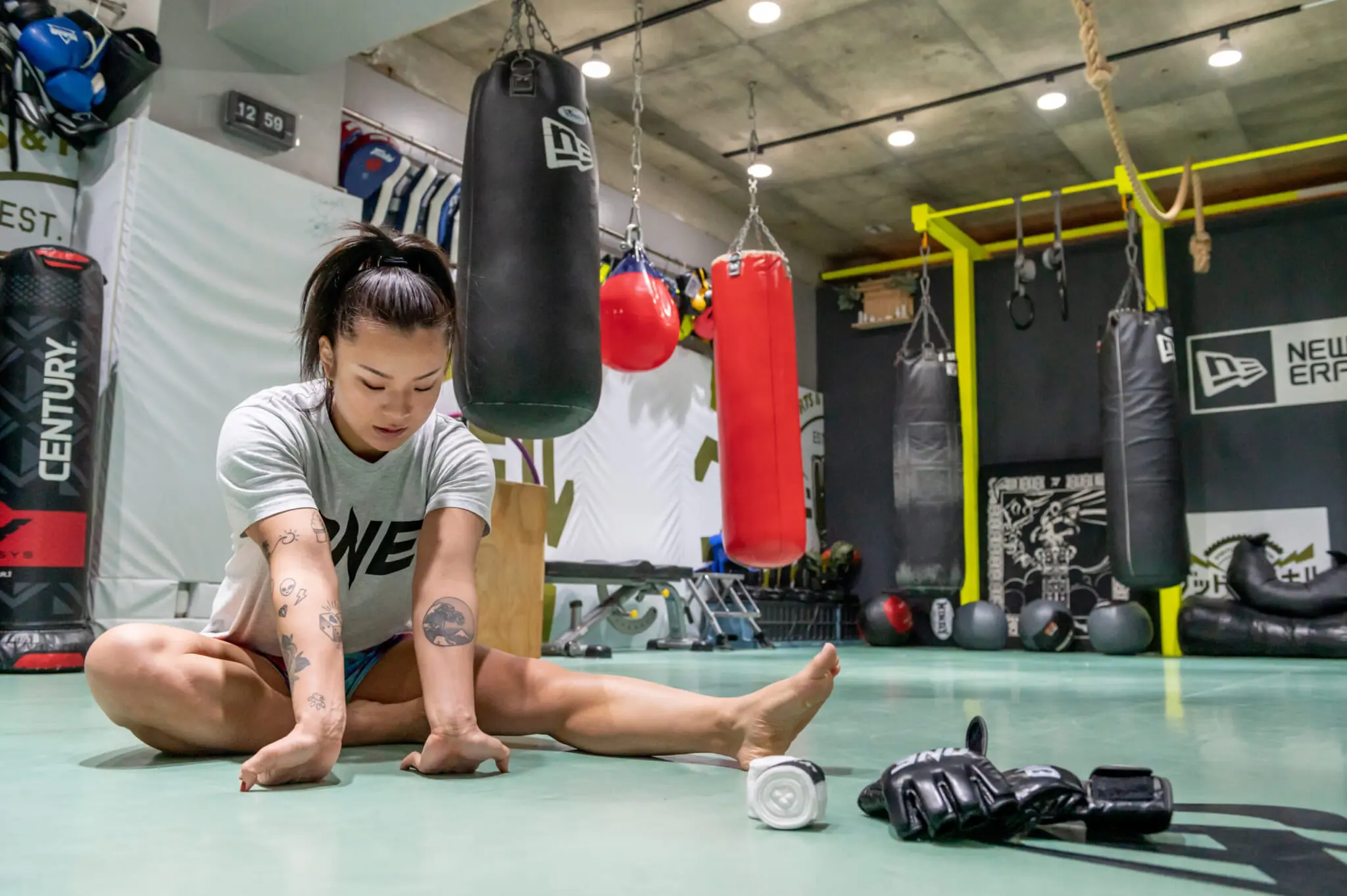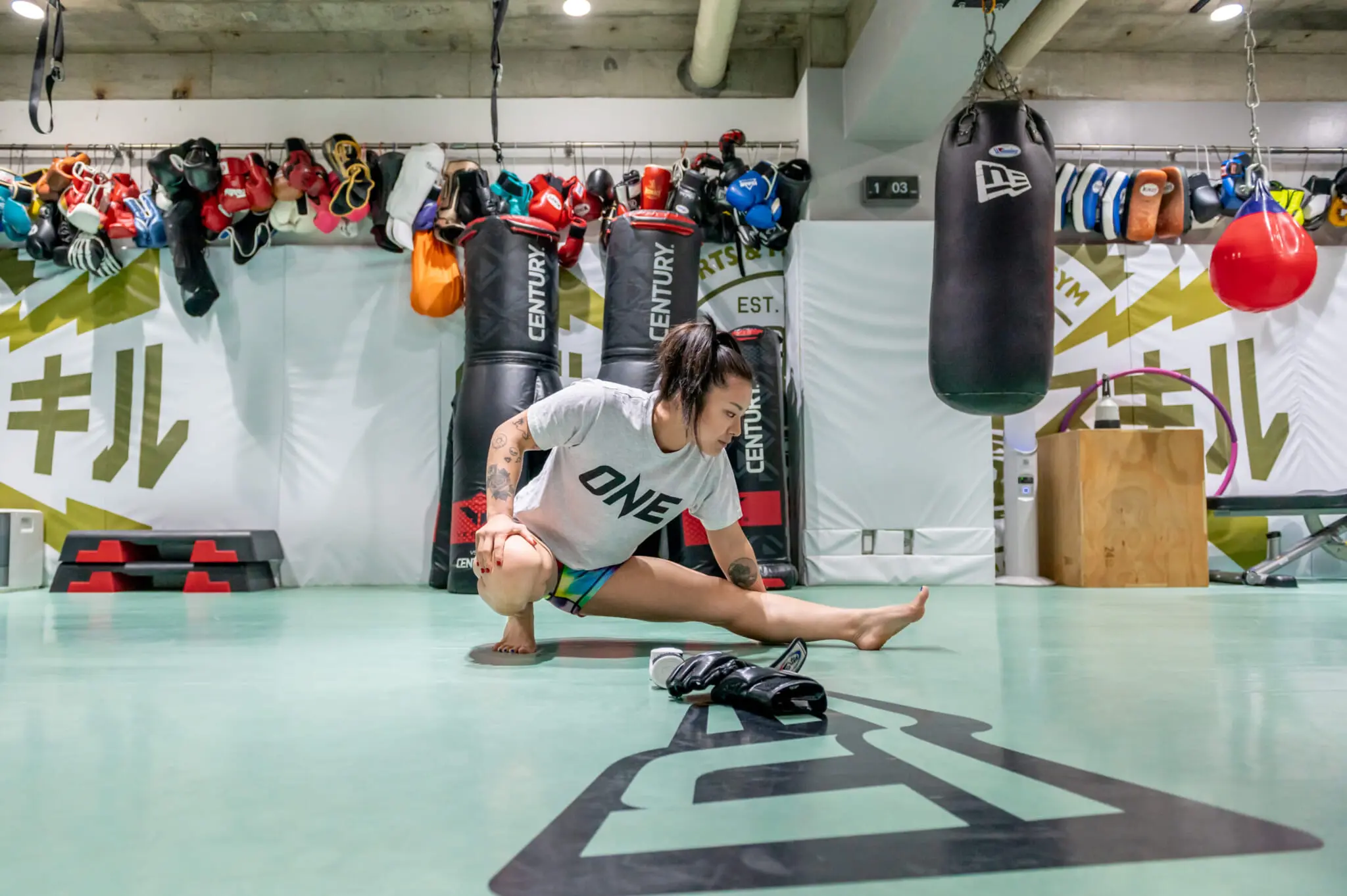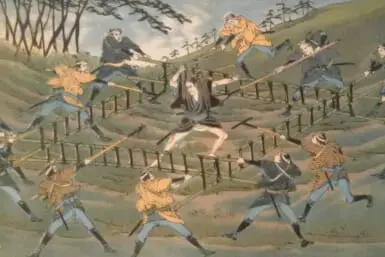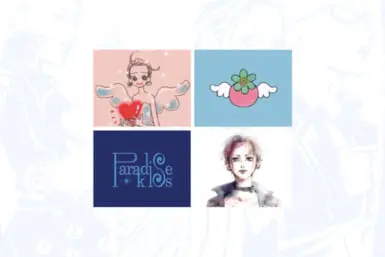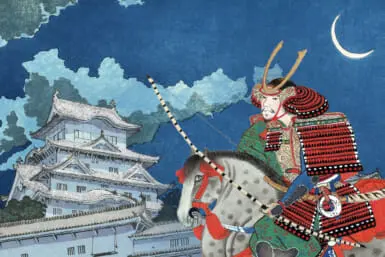Mixed martial arts (MMA) has exploded in popularity around the world in recent years, with a number of promotions and athletes becoming household names. Like modern-day gladiators, MMA fighters must dedicate their lives to a variety of martial arts in order to reach the upper echelons of professional competition, which has garnered a die-hard fan base due not only to the unpredictable nature of the fights that can end in a multitude of spectacular and devastating ways but also to the equally diverse personalities that populate the sport.
One such fighter is Japan’s Itsuki Hirata, who at just 23 years of age competes as a professional in one of the world’s largest MMA promotions, One Championship (stylized as ONE Championship). Going by the nickname of “Android 18,” a reference to the powerful character of the same name from the Japanese anime Dragon Ball, Hirata has become known for an aggressive fighting style that often sees her opponents overwhelmed and outmatched.
Today, spending time between Tokyo and New York for training, Hirata has her eyes set on reaching her zenith as a mixed martial artist while striving for championship glory.
A Fighting Family
As is the case with many athletes who reach the pinnacle of their sport, Hirata was introduced to martial arts at a young age. Specifically, it was judo, a martial art known primarily for opponents throwing one another to the ground, that set her on the path towards a career in MMA. “My older brother took up judo from a very young age, which then inspired me to do the same,” the fighter recalls. “I started judo when I was six years old. Then when I reached high school, I lived in a dorm and began training in judo professionally.”
But after graduating high school and returning to her hometown, Hirata found herself in search of new ways to train. By chance, she came across a mixed martials arts gym not far from her home. “My brother had always taken me to watch MMA competitions,” Hirata explains. “My father also enjoyed MMA, so when I spoke with him about it, he was very open to the idea of me training in the sport.”
It was from here that Hirata’s drive as a fighter became truly apparent. Soon after beginning her training at the local MMA gym, Hirata applied to compete on Abema TV’s Fighting Agent War competition, where she won all three of her fights via submission at only 19 years old. “After winning the show, I was able to sign a contract with One Championship, and it’s been almost four years now since I began training and fighting professionally,” she says, smiling.
Life in the Spotlight
Entering the world of professional sports is a dream that only a select few athletes ever realize, regardless of their chosen discipline. But with this transition from amateur to professional comes some overwhelming moments. Travel, press obligations and sold-out arenas are simply the norm for many fighters, and Hirata was no exception, finding herself thrust into the world of professional MMA essentially overnight. “It hit me right from the get-go. The fact that I had to fly to Shanghai for my first fight, and the size of the stadium — it was incredible,” Hirata recalls. “My worldview changed instantly on the journey to that fight.”
But in MMA, as is the case with most sports when competing at the highest level, it becomes a lifestyle as opposed to simply a job. While most of us can leave our work at the office at the end of the day, for fighters like Hirata, the work never really stops. Along with training almost year-round to maintain conditioning and improve upon technique, the notoriety that comes with fighting in one of the world’s largest MMA promotions requires its own level of resilience to navigate.
“The more I compete, the more people begin to watch me, and, of course, there are many people with many opinions, so I need to do my best to act right and do right while also taking care of my private life,” the fighter explains.
It was in coming to grips with life in the spotlight that Hirata found herself inspired by veteran Japanese MMA star Shinya Aoki, who has been known for his wild and outspoken nature throughout the course of his career. “Something that always stuck with me was when Shinya Aoki tweeted ‘to have the strength to appear in the public eye.’ Those words have always stayed with me, because whether I am complimented or criticized, I need to maintain a strong determination and keep pushing forward,” Hirata says.
A Reason to Fight
There are few sports on earth that take a toll on the body and mind like MMA does. Competition sees almost all fighters injured at some point, and to simply make the walk and step into a ring or cage across from another trained combatant takes incredible resolve. Then once the cage door closes and the bell rings, fighters are all but alone with their opponents. This is why MMA is often referred to as a lonely sport: In the end, a fighter only has themselves to rely upon.
But while fights are one-on-one, Hirata explains that it’s the people behind the scenes, far away from the battle, that drive martial artists like her to succeed under the bright lights of competition. “For every fight, I have nerves — but in a good way. My friends are always supportive, while also asking me to come back alive,” she says, laughing. “But my greatest inspiration is my mother. In the lead-up to a fight, she’ll be really fired up and serious, but right before I leave, she always tells me that it’s going to be okay. That’s why I’m able to fight — because of the friends and family that support me.”
The Mindset of a Champion
Even with a great support network, the intense training and dedication required of young professional fighters means that they live very different lives compared to their non-fighting peers; there’s no random partying or eating junk food whenever the mood strikes. MMA must come first, and Hirata has been quick to not only accept but embrace that reality.
“There are not a lot of fighters that started out like me, so I’m very grateful to be able to fly to different parts of the world and do something that I enjoy,” she says. “But because this is something that I can only do right now at this stage of my life, I’m happy to throw away everything else to be a mixed martial artist.”
It’s with this steely mindset of focus and determination that Hirata has her sights set not only on her next opponent but also, one day, championship gold. “My goal is to eventually fight and defeat Angela Lee, the current champion in my division. I want to win that belt, put it over my shoulder, take it on the flight and carry it all the way home with me,” she says with a smile, suggesting that it’s only a matter of time until her dream is realized.
Itsuki Hirata is next scheduled to fight internationally on March 25, 2023. The fight can be watched live on Abema TV.
Interview and translation by Lyn Tsuchiya

